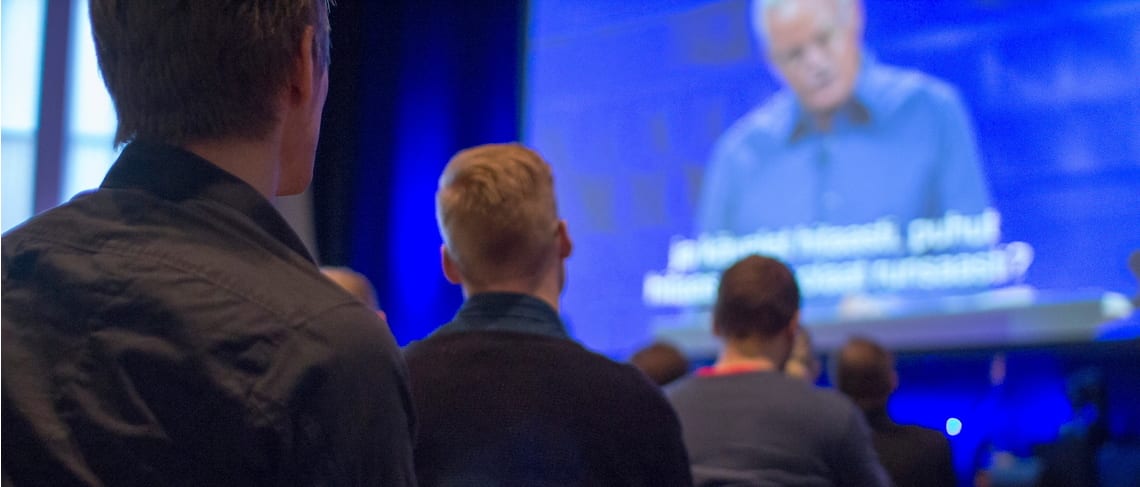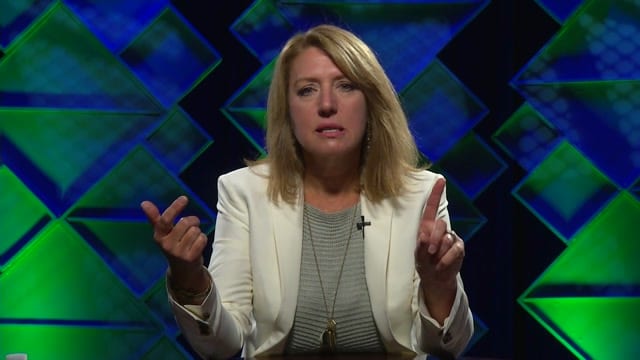
“My name is Thobile Mnisi, and I’m the Center Manager for Challenge Ministries. It’s a rehabilitation program that takes ladies from the age of 14 and up who are battling with life controlling habits, as well as ladies who have been physically and sexually abused. I’m a leader there, and this Leadership Summit has helped me look at my own leadership skills. I’ve learned to allow God to lead what I’m doing. Sometimes we’ve made mistakes because we’ve done things based on what I thought was best, but I’ve learned that I need to bring it to God.
Albert Tate talked about a boy who had five loaves and two fish and he gave them to Jesus. One thing he said stood out to me, “This boy gave Jesus his lunch, and then he moved out of the way.” He didn’t direct Jesus and say, could it be distributed this or that way? He let Jesus be the leader and do what he wanted to do. I want to give Jesus what I have. I do believe that God has given me the leadership skills, but now I have to let him be the one to tell me how to drive the boat that he has placed in my hands. I also learned that I need to embrace the love of God as a father to me. He must be the father figure that I never had. For me, I saw God as someone who was up there, who couldn’t get to me, but today I learned that as a leader I need to be vulnerable, tell him my fears, and allow him to be my father and lead me in this journey. I’m so grateful for all the teaching. I know it was not a mistake for me to attend. It was God’s plan me. I’m going to go back and be the leader that God wants me to be.”
– Thobile Mnisi, GLS attendee, Swaziland
“My name is Rogeros Mamba, and I’m working with the Luke Commission as the Director of Community Organizations, and I’m also a senior advisor. I’m so glad to work with the Luke Commission because I was awarded a chance to attend the Leadership Summit. I discovered my blind spot as a leader. I learned that as a leader I musn’t take challenges as something that will make me fail. Instead, I want to take challenges as a stepping stone to grow forward as a leader. I learned that a good leader is someone who always humbles himself and opens up his ears to hear from the people he’s leading.”
– Rogeros Mamba, GLS attendee, Swaziland
“My name is Wayne Levendale, and I’m the CEO of Premio Swazi. We run the biggest flour mill and bakery in the country and deliver throughout the whole kingdom. The Summit helped me learn and realize the basics that we take so much for granted. A lot of people in Swaziland live in a small community, and we like to keep things to ourselves when they go wrong. But the truth is we have to take it up and deal with it. I think a lot of leaders, especially in Swaziland, and I start with myself, when we’ve talked about the ‘why’ it is a lot of “me, me, me”, but listening to those messages help us widen our ‘why’. It helps us play a part in doing God’s work, adds to the Kingdom, making it a part of our entire life. We can grow as a nation much better than we currently are. I’m grateful for the Global Leadership Summit for considering Swaziland. We are such a small country. We can easily be forgotten. Thank you!”
– Wayne Levendale, GLS attendee, Swaziland















Recent Comments